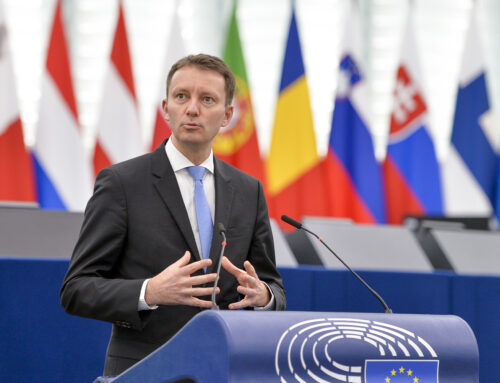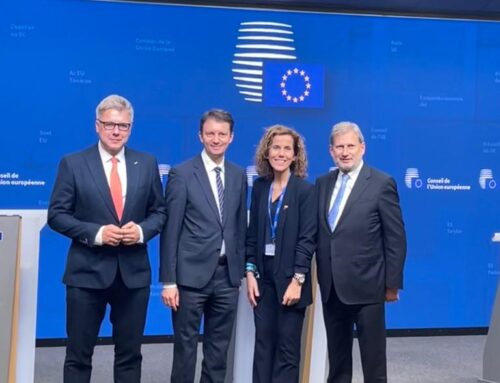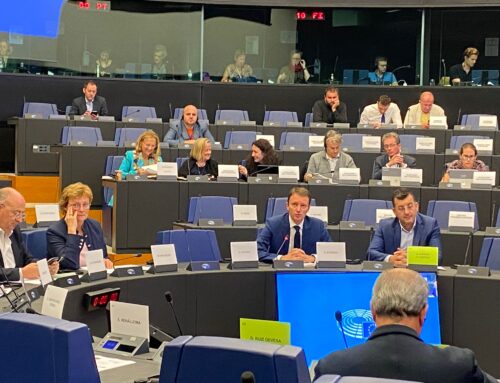The creation of a European exchange programme for apprenticeships similar to the Erasmus programme for students might be a good opportunity for young Europeans to acquire better skills. Therefore, in the next months, we will work in the Committee on Budgets of the European Parliament to evaluate if and how this kind of programme can be implemented at European level.
Together with some colleagues of the Committee on Budgets of the European Parliament we visited yesterday a steel factory in the city of Kehl in Germany, just on the other side of the Rhine from the European Parliament’s seat in Strasbourg. A pilot project “European mobility and apprenticeship” was initiated here in 2013, bringing together French and German trainees in the “Badische Steelworks”.
The project is well-known for its vocational programme, making the most of the dual education system. The apprenticeship program leading to a certificate of skilled worker takes 3.5 years, whereas only 30% of education is spent in school classes and 70% of training is at their place of work.
The scope of our visit was to evaluate whether the creation of a European exchange programme for apprenticeships is feasible. Similar to the Erasmus programme for students, trainees would go abroad for half a year or a year, to acquire a different set of skills in the process, which would complement the program from their country of origin. When talking to the young trainees, I was pleasantly surprised to hear that all of them, be it German or French, would be ready to spend part of their apprenticeship in a different European country if such a programme would exist and would cover their living expenses abroad.
At the moment, the young trainees take part in an exchange programme of maximum one month in total. They can spend two weeks in an enterprise in Austria and two weeks in France. Unfortunately, a longer period of time is not possible for the time being, due to the prevailing differences between educational systems across European Member States.
Nevertheless, the experience of the Bologna Process shows that the advantages considerably outweigh the disadvantages of harmonising university education at European level. Harmonisation of the dual education system will be needed over the medium-term, also to equip young people with the right skills to have access to jobs in any EU country in the future. Going abroad means learning new languages, getting to know other cultures and finding out new career opportunities as well. Young trainees are an important component of our society. Irrespective of their degree of education, we should stimulate people to acquire the knowledge, which best fits their skills and potential.
Companies need to be made aware of the added value of sending their own trainees abroad. Trainees can acquire new innovative skills, which they would not be able to acquire by solely staying in their home country, and ultimately benefit the company. It is important to find incentives and to make it attractive for companies to engage is in this project and also accept young trainees from abroad.
Most challenging is the financing of the project. Europe has to engage and contribute financially, like in the Erasmus programme, so that young people can receive a scholarship during their time abroad. Europe has to facilitate exchange and enable mobility among young trainees in all Member States.









Stay In Touch